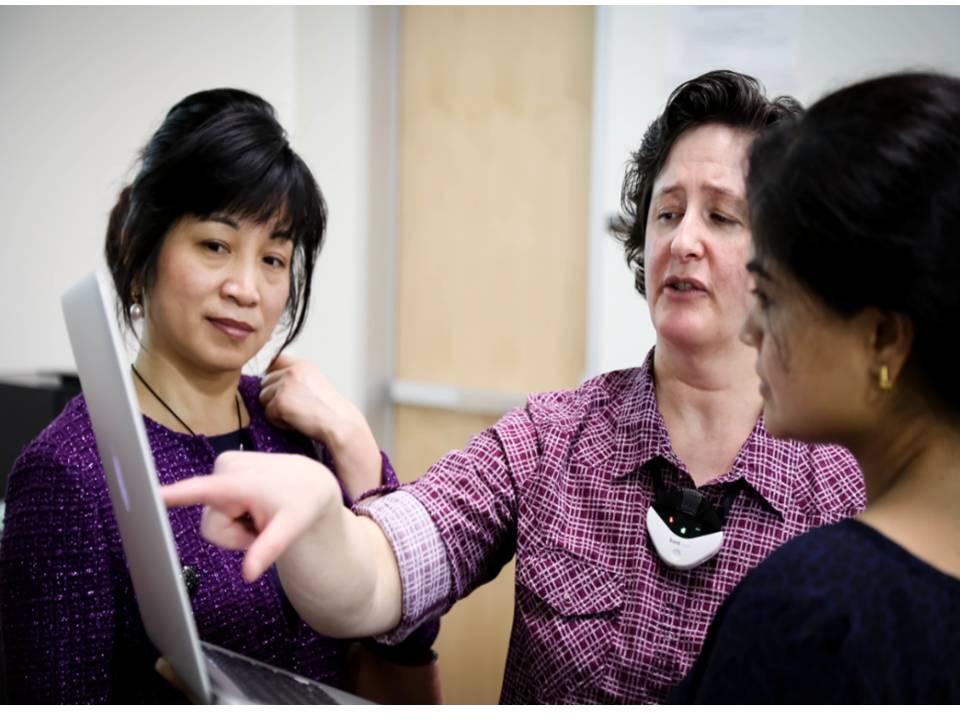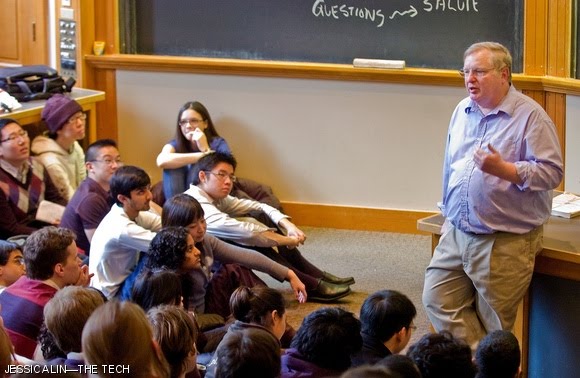Artificial Intelligence course introduces the foundation of simulating or crating intelligence from a computational point of view. It covers the techniques of reduction, reasoning, problem solving, knowledge representation, and machine learning. In addition, it covers applications of decision trees, neural Networks, support vector machines and other learning paradigms.
Barbara Hecker, J.D., Ph.D.
Barbara is an entrepreneur with a passion for teaching. She’s been a Department Chair, Chief Academic Officer and professor of Computer Science and Software Engineering at various state and private colleges for over 20 years. She has also founded several successful Silicon Valley start-up companies. She has earned master’s degrees in Software Engineering, Information Systems, and Telecommunications. She has also earned a Juris Doctorate and a PhD in Computer Science.

In all of her academic roles, she strives to provide superior graduate education, research and innovation. Outside of academia, Barbara’s interests and hobbies are in programming and software development. She is an innovative app developer and designer. Like most Silicon Valley entrepreneurs, she hopes to someday develop that “killer app,” get rich and then retire. In the meantime, she enjoys learning and sharing her experiences with others.
Educational Background
Ph.D. Computer Science
JD – Juris Doctor
M. S. Software Engineering
M. S. Information Systems
M. S. Telecommunications
B. S. Business Administration, Minor in Psychology
This video provides an introduction to the ITU Artificial Intelligence class. It only goes over the syllabus and the topics to be covered in this class.
Artificial Intelligence – Lecture 1
This lecture goes over the definition of AI and what might be considered AI. It discusses the concept of the “Turning Test” and whether or not modern day AI applications would pass it. The lecture also covers an overview of what AI is by definition and how to tell if a solution is AI based or not.
Artificial Intelligence – Lecture 2
This lecture covers the concept of Agents and the different types of Intelligent Agents and how they work together. The lecture provides and overview on how to design an Agent based solution. It also covers the different types of Agent Based solution scenarios.
Artificial Intelligence – Lecture 3
This lecture covers the concept of problem solving in Artificial Intelligence. It proposes a methodology for how to approach the solving problem technique and discusses how to design a solution to an Agent or Search based problem resolution.
Artificial Intelligence – Lecture 4
This lecture covers the concept of searching in informed and uninformed formats. Only an overview of searching as a concept is presented. The textbook goes over the implementation of the different searching algorithms that will be used in problem solving using searching methods.
Artificial Intelligence – Lecture 5
This lecture provides an overview of the LISP and Scheme programming languages. The lecture goes over an overview of what functional programming languages are and how they are used to solve problems. Dr. Racket installation and usage is also demonstrated.
Artificial Intelligence – Lecture 6
This lecture overviews the concept of Genetic Algorithms and how they apply to Artificial Intelligence. It provides a framework for understanding how this type of problem solving can be applied to computer science problems.
Artificial Intelligence – Lecture 7
This lecture provides an overview of how Prolog can be used to solve Artificial Intelligent logic related problems. It provides and overview of how prolog works with knowledge bases and with list processing. It’s just an orientation to the Prolog concept and functionality.
Artificial Intelligence – Lecture 8
This video goes over the final exam for the weekend AI class at ITU. General YouTube viewers are not going to find it helpful. It is intended for ITU students in their preparation for the final exam. Assignments 4, 5, Midterm and CSLO Essay are also described in this video.
Artificial Intelligence – Lecture 9
This lecture covers the concept of Expert Systems. The different types of systems are explored along with some examples. The concept of knowledge-bases, inference engines, rules, facts, and inferences is explored. The lecture is an overview of the concepts related to Expert Systems in general.
Artificial Intelligence – Lecture 10
This lecture discusses the concept of Knowledge Acquisition and Discovery. It overviews the concept of Knowledge Engineering and how to create a knowledge base in terms of the logic and AI components. It also finishes the discussion on how Expert Systems and how they work. An overview of the problems with using knowledge and Truth Maintenance is also explored though many different examples. Some of my elaborations and examples may sound off target but they are demonstrating knowledge issues and the value of keeping knowledge databases and information up-to-date in the real world.
Artificial Intelligence – Lecture 11
This lecture covers an overview of Bayesian Networks and how they are used in Artificial Intelligence. The concept of probability and general statistics applied to AI and network construction is also discussed. The lecture provides a high level overview without getting into the technical details about how the Bayes Nets are constructed. It’s for general concept and overview purposes.
Artificial Intelligence – Lecture 12
This lecture overviews the concept of Game Playing. The overall concept of designing AI applications to simulate game playing and game concepts is explored.
Artificial Intelligence – Lecture 13
This lecture covers the concept of Artificial Neural Networks and the different varieties that are used with computer artificial intelligence applications and problem solving. It is just an overview of the concepts and what makes up the ANN concepts.


